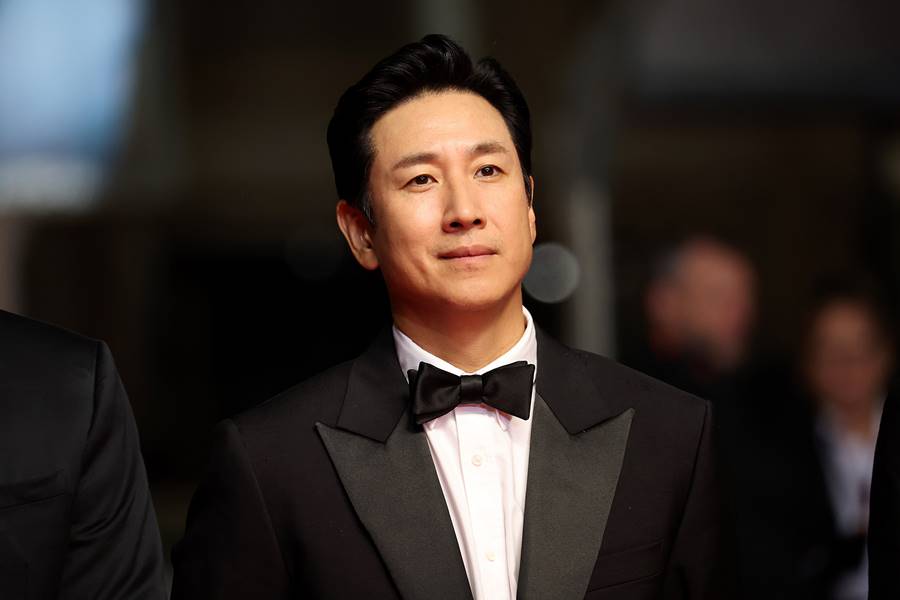
By Jae-Ha Kim
Substack
December 27, 2023
On December 27, 2023, actor Lee Sun-kyun died by apparent suicide.
Alarmed by finding what appeared to be a suicide note, his wife — the actress Jeon Hye-jin — called the police. By the time they reached him in central Seoul, he was dead. Though the autopsy report is yet to come, experts are speculating that he died of carbon monoxide poisoning from the charcoal-burning briquette found in the passenger seat of his car.
His management company confirmed his death with a statement:
“This is Hodu&U Entertainment. We are sorry to bring you sad news. Actor Lee Sun-kyun passed away on December 27. There is no way to contain our sorrow and despair. We respectfully ask that you refrain from spreading false facts based on speculation or malicious reports, so that the deceased’s final journey will be in peace. The funeral will be held quietly with the bereaved family and colleagues in attendance. We express our deepest condolences on the deceased’s final journey.”
Born on March 2, 1975 in Seoul and educated at the Korea National University of Arts, Lee made his professional acting debut in the 2000 short film “Psycho Drama,” followed by 2001’s stage show “The Rocky Horror Picture Show” (where he portrayed Brad Majors) and the 2002 television series “Lovers.” With his undeniable talent, good looks and rich, deep voice, Lee became a K-drama favorite after landing pivotal roles in “Coffee Prince,” “Pasta” and “My Mister.” But it was his performance as the rich family patriarch, Mr. Park, in Bong Joon-ho’s Academy Award-winning Parasite that won him international recognition.
Lee, 48, is survived by his wife and their two sons (aged 14 and 12). His funeral is planned at the Seoul National University Hospital’s funeral hall.
May he rest in peace. And may his family find the strength to endure this tragedy.
Facts about the accusations against the actor:
October 20, 2023: The Yonhap News Agency reported, “The Incheon Metropolitan Police Agency had begun an investigation into eight people, including [Lee Sun-kyun] and the offspring of a chaebol, over allegations they took illegal drugs multiple times this year.” Lee denied taking any illegal drugs. (Marijuana is illegal in South Korea.) Hodu&U Entertainment responded by saying that the actor had himself brought this issue up with the police when he filed a blackmail complaint against one of the people included in the investigation.” Lee had apparently paid that woman a substantial amount of money (almost $300,000 USD).
October 28: Lee was summoned for police interrogation shortly thereafter, where he denied taking marijuana and psychotropic drugs at the home of that woman.
That she was young (in her 20s) and worked at a high-end bar in Gangnam only fueled the salacious rumors that he was sleeping with prostitutes. And then netizens began spreading rumors that he had previously cheated on his wife with Parasite co-star Cho Yeo-jeong. The “proof”? There was none. Netizens speculated based on photos of the two stars hugging… To celebrate the success of their film… In public… Surrounded by their co-stars, audiences and the media.
“I keep thinking about his wife and children. They will continue to pay the price of not only what he was allegedly doing, but also how he died. So much pain and sorrow. And for what? What is the lesson? Don’t do anything to bring shame to ‘us’”? — Joy Lieberthal Rho, LCSW
November 4: Lee was questioned by police again. That same month, Korea’s National Forensic Service performed a drug analysis of his hair samples. The police conducted reagent analysis as well. Both came back negative. During this timeframe, Lee admitted to only taking crushed sleeping pills through his nose, which his accuser said wasn’t true. Yes, that sounds like an implausible lie. Do I think he smoked pot? Yes. Do I think he inhaled a sleeping pill through a straw? No. Do I think he should’ve been raked over the coals for smoking pot? No. But a lie detector test would’ve helped mete out whether he was telling the truth. [Yes, I realize this wouldn’t have been admissible in court. But in a case of his word against hers, it could’ve shed some light on what actually happened.]
December 24: The police interrogated Lee for 19 hours. During this time, he requested that a lie detector test be given to both himself and to his accuser (who said she witnessed his drug use in her home).
December 27: Lee was found unresponsive in his car, in what will most likely be ruled as a suicide in the forthcoming autopsy report.
Suicide in South Korea
I’m currently watching the K-drama “Welcome to Samdal-ri,” where the female protagonist (played by Shin Hye-sun) is accused of mercilessly bullying a subordinate, who claims she was driven to attempt suicide because of her boss. Despite there being no evidence that Sam-dal harmed her underling… despite everyone knowing that she would never bully anyone… despite work colleagues who never witnessed any of this… all but a handful of people collectively turn their backs on her, turning her into a pariah overnight.
Anonymous netizens who knew nothing about the case except for the victim’s version dug their claws into Sam-dal, making libelous comments online. For them, it was fun and games. Even her parents’ friends questioned whether she had done the things the media was reporting. Fiction becomes the truth if enough people believe it, right?
Following Lee Sun-kyun’s death, you are going to read a lot on social media and in newspapers about how South Korea has the highest overall suicide rate of all countries — 26 deaths by suicide per 100,000 population according to Statista. (By comparison, the United States data indicates a suicide rate of 14 deaths per 100,000.) And while someone will surely write a think piece about South Koreans being predisposed to dying by suicide, it’s important to remember how South Korea came to be an economic powerhouse and how its citizens’ well being was secondary to the country’s greatness.
South Korea’s rise in economic power happened quickly. After the Korean War from 1950 to 1953 — though technically North and South Korea are still at war — South Korea was one of the poorest countries in the world. It was not a developed nation at the time. But from 1961 to 1997, the government pushed for rapid economic growth — or what’s referred to as the Miracle on the Han River. Elements that factored into this development included an emphasis on educating its people, forcing an unrelenting work ethic and encouraging its citizens to work overseas to send home stronger foreign currency.
In order to achieve a so-called miracle comparable to Germany’s, we should have austerity and diligence comparable to that of the Germans.
—Prime Minister Chang Myon, 1961
Wrap your head around that statement and then think about what South Korea must have been like during that era. And some of that attitude was passed down to their children, and grandchildren and great grandchildren and so on.
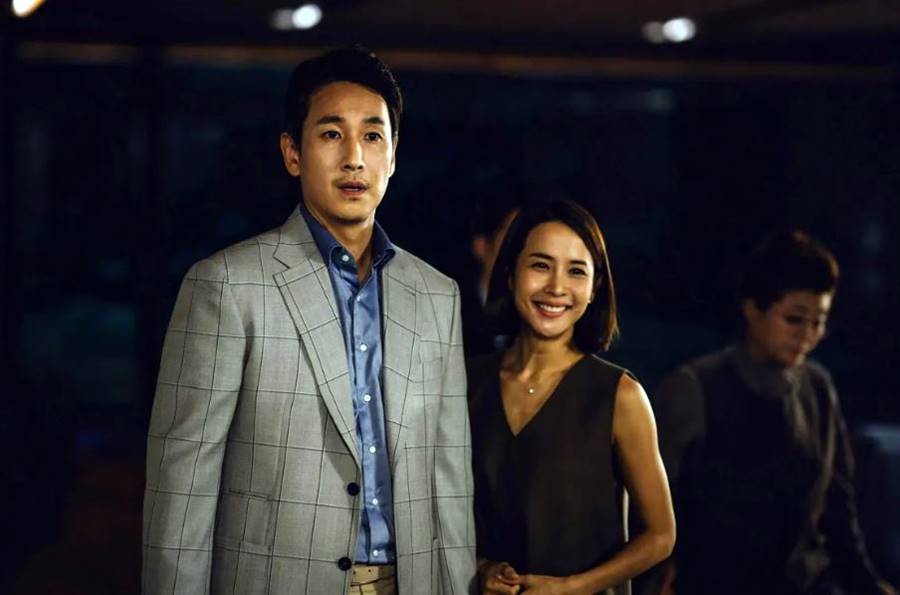
In 2019, VARIETY magazine asked me to write about the alarming rate of suicides among South Korean celebrities. For that article, I interviewed numerous mental health and culture experts, whose words I am reminded of today. I remembered what Jeeheng Lee of Seoul’s Chung-Ang University told me: “Koreans have a strict moral code for their celebrities.”
Royce Lee — an associate professor of psychiatry and behavioral neuroscience at the University of Chicago — added at the time, “All cultures have a stigma against mental illness — it’s not uniquely Korean. But when talking about celebrities, the intersection of culture and psychology becomes very important. The idea that one must please everybody is both a very Korean idea and a very common problem with fame. So it is a double whammy.”
But individual responsibility isn’t enough. There needs to be social change.
“The audience, media and culture need to shift into acceptance rather than demanding artists conform to meet our expectations,” The U of C’s Lee added. “Otherwise, these stars are caught in a loop of abuse that will never end.”
Last night and this morning, so many of Lee Sun-kyun’s fans mourned his tragic death. Some questioned whether there were other issues that caused him to take his own life. And I would argue that regardless of whether he was guilty of taking drugs, the other issues were related to the accusations. The cause and effect of all of this is this poor man’s death. He was shamed for his alleged drug use… for cheating on his wife… for patronizing brothels. None of this was proven, because there has been no proof. (Remember, the drug tests he had taken already came up negative.)
This afternoon, I asked Korean American therapist Joy Lieberthal Rho to help me make sense of this preventable tragedy. Born in South Korea, where she spent part of her childhood, she said, “To discipline is to teach — a code of behavior, the study of knowledge. When a society uses shame as a way to discipline, then any behavior society deems shameful becomes internalized as you are unworthy — even to live. The operative arbiter then is society, the amorphous construct that decides who is deserving and undeserving.
“Add to that the idea that Korea is a collective culture. So the society that emphasizes the collective and disciplines with shame, the individual, even the intimacy of what happens in a singular relationship, is up for scrutiny and judgment. I keep thinking about the ‘scandals’ here in the U.S. by celebrities and how the idea of the collective shame is not a part of the discussion. The individual indiscretions, criminal behaviors and the like are just that — individual, not a statement about how America is perceived or seen, how a family is marked or judged.”
I think about all that he lost during these past two months. Lee pulled out of the starring role in the upcoming film “No Way Out” after the accusations were made public. One could argue that it was his decision, but what choice did he really have? He already saw what happened to Burning actor Yoo Ah-in, who was arrested in March after testing positive for cocaine, propofol, ketamine and cannabis.
On May 24, as he was being led into court with his wrists tied together, someone in the crowd threw a bottle of coffee at Yoo. And following the actor’s pre-trial detention on September 21 , another anti-fan contemptuously threw a wad of money at him, mocking the actor to use it to pay his bail.
Yes, South Korea has one of the most strict anti-drug laws in the world. And every Korean knows this. So why even experiment with drugs, one might ask? The same reason people do a lot of things. Why have an affair when you could go to prison? (Adultery was illegal in South Korea until 2015.) According to psychologists, it’s the false consensus effect, where people may assume that since everyone is doing it, it can’t be really bad.
And from a layman’s point of view, I wonder if the way we treat celebrities adds to their feeling of being invincible and, perhaps, untouchable by the law.
Certainly, not all Korean celebrities had their careers ruined by drug charges. In 2009, “Princess Hours” actor Ju Ji-hoon was sentenced to six months imprisonment, 120 hours of community service and a fine of ₩360,000 — about $286 USD — for taking ketamine and ecstasy. He followed his sentence up by enlisting in South Korea’s mandatory military duty and resumed acting after he was released. He went on to star in Netflix’s popular series “Kingdom.”
Then there is the strange case of actor Lee Geung-young, who was arrested in 2002 for the prostitution of a minor and was sentenced to 10 months imprisonment and 160 hours of community service. He was banned by some Korean networks from appearing on their shows for a handful of years. But the Korean entertainment industry forgave him quickly enough. Aside from a couple years when he didn’t work, his film career flourished and he returned to acting in K-dramas. He basically plays the same role: the seemingly kind old man who’s the brains behind some diabolical plot. I suppose his real-life baggage serves the necessary purpose of making viewers recoil at the sight of him. (He acted in four high-profile Korean shows in 2022 and was featured in this year’s “Dr. Romantic 3.”) Or the Korean casting directors don’t care about the trafficking of underage girls.
And I can’t help wondering … if Lee Sun-kyun had been less famous … would the media and prosecutors and netizens worked themselves up into a frenzy over his alleged drug use?
“I keep thinking about his wife and children,” Lieberthal Rho, LCSW, said. “They will continue to pay the price of not only what he was allegedly doing, but also how he died. So much pain and sorrow. And for what? What is the lesson? Don’t do anything to bring shame to ‘us’”?
If you are suffering from suicidal ideation, call or text 988 in the United States.
Globally, contact Befrienders Worldwide or the International Association for Suicide Prevention for crisis centers near you.
© 2023 JAE-HA KIM | All Rights Reserved
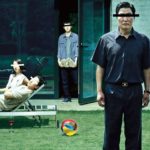

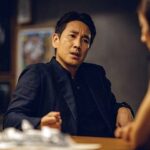
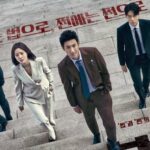
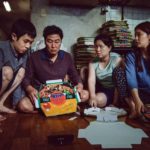

4 thoughts on “How South Korea’s stringent anti-drug laws played a role in the death of “Parasite” actor Lee Sun-kyun”